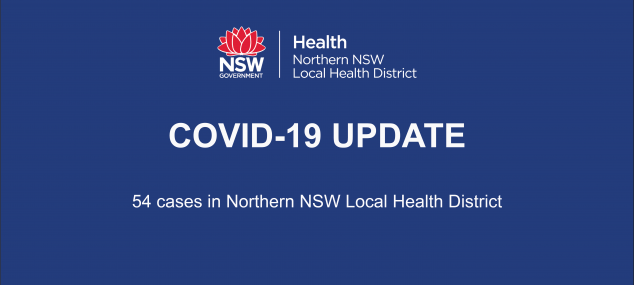
As at 8pm Tuesday 14 April there were 54 confirmed cases of COVID-19 in residents of the Northern NSW Local Health District, with 1 new case having been confirmed since Saturday.
NNSWLHD cases by likely source of infection:
Source
Total
Overseas or interstate acquired
51
Contact of a confirmed case or in a known cluster
2
Contact not identified
1
Under investigation
-
Total
54
Of the NNSWLHD cases, there are currently 2 patients with COVID-19 being cared for in our hospitals, one of these in ICU.
Breakdowns by Local Government Area can be found on the NSW Health website: https://www.health.nsw.gov.au/Infectious/diseases/Pages/covid-19-lga.aspx
As more information is gathered each day due to ongoing surveillance of existing cases, the counts reported on a particular day may vary.
Community vigilance
Northern NSW Local Health District Chief Executive, Wayne Jones, thanked the community for their support and engagement with the public health orders restricting movement over the past few weeks.
"It’s pleasing to see the numbers of new cases in our region slowing, and I want to acknowledge the efforts that have been made by our local residents in helping bring this about," Mr Jones said.
"I encourage everyone to continue with handwashing and physical distancing which have been working so well to date.
"As the hospital level, we’re continuing to prepare for any increase in positive cases that may occur over the coming months, and our staff are doing a great job in adapting to new directives and in some cases, new roles, as our response evolves."